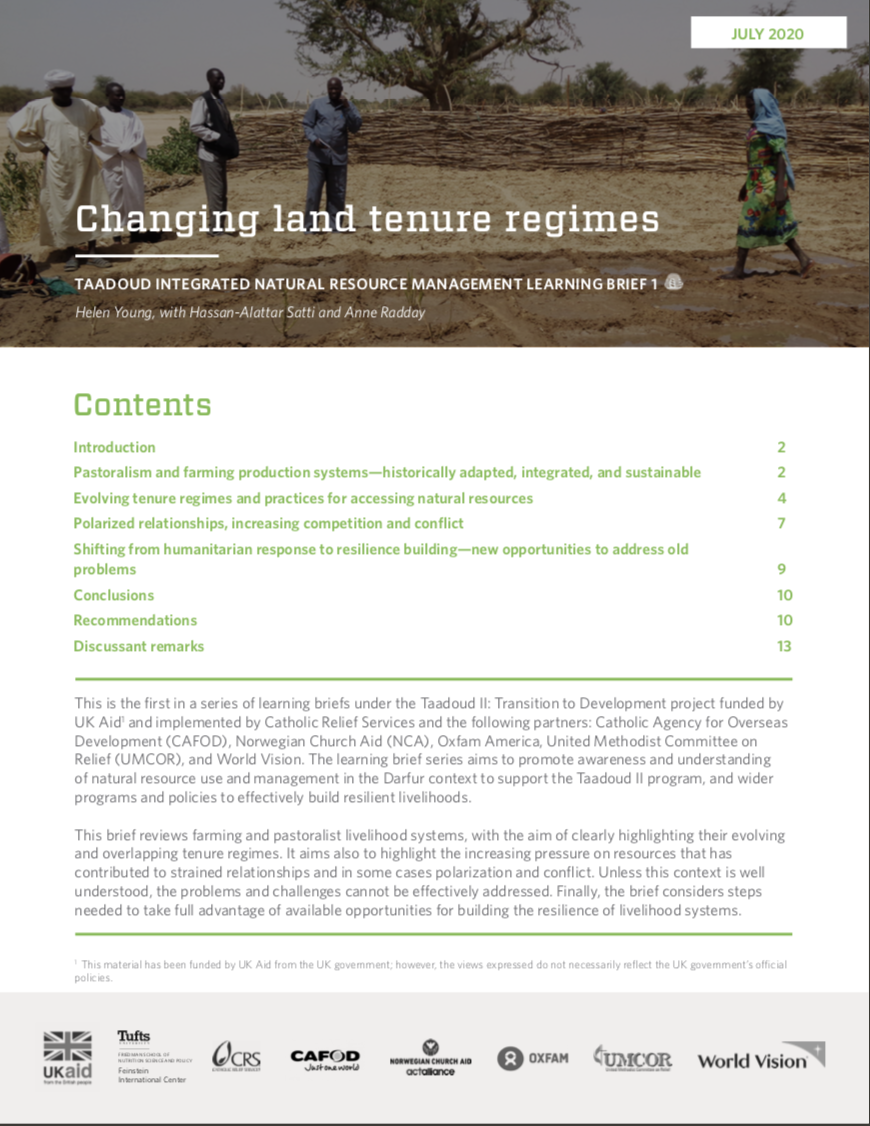Most people in Darfur depend on farming and pastoralist systems of production for their livelihoods. These two systems, or livelihood specializations, have given rise to livelihood strategies predominantly based on either farming or pastoralism, or a combination of both. Traditional farming is rain fed, with some irrigation in the cool dry season in the seasonal river beds and valleys known as wadis. Pastoralism is an extensive grassland-based form of livestock production that depends on livestock moving to access water and grazing resources in areas of high rain fall variability. Types and patterns of livestock mobility vary enormously. Agro-pastoralism is a production system that includes both cultivation and pastoralist livestock production.
This brief reviews farming and pastoralist livelihood systems to highlight their evolving and overlapping tenure regimes. It also discusses the increasing pressure on resources that has contributed to strained relationships and in some cases polarization and conflict. Unless this context is well understood, the problems and challenges cannot be effectively addressed. Finally, the brief considers steps needed to take full advantage of available opportunities for building the resilience of these livelihood systems.
This is the first in a series of four learning briefs under the Taadoud II: Transition to Development project funded by UK Aidand implemented by Catholic Relief Services and the following partners: Catholic Agency for Overseas Development (CAFOD), Norwegian Church Aid (NCA), Oxfam America, United Methodist Committee on Relief (UMCOR), and World Vision. The learning brief series aims to promote awareness and understanding of natural resource use and management in Darfur to support the Taadoud II program and wider programs and policies to effectively build resilient livelihoods.







